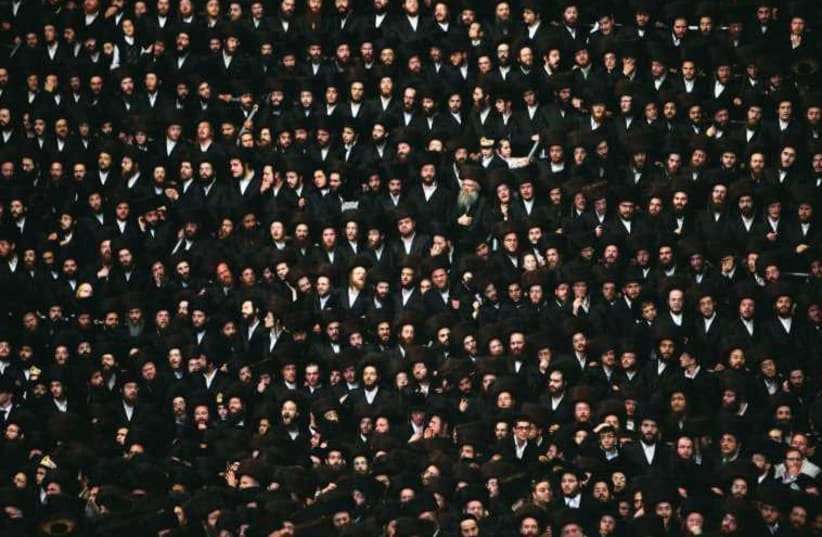The police are investigating two senior officials from the Belz Hassidic community on suspicion there were mass violations of COVID-19 regulations over Sukkot.
The police told The Jerusalem Post on Wednesday that “two representatives from the Belz yeshiva were questioned under caution by police in connection with illegal gatherings that took place on the first festival of Sukkot.”
The two Belz figures were released under restriction after being questioned by police, and the investigation is continuing
Earlier this week, the Post witnessed hundreds of men streaming into the Belz Great Synagogue in Jerusalem through a side door with prayer shawls and the Four Species used in prayers during the current Sukkot holiday, ostensibly for mass prayer services, although access to the site was violently blocked.
The Post understands from sources who wish to remain anonymous that there are several hundred Belz yeshiva students from abroad residing in the Belz Great Synagogue complex, and that mass prayer services are taking place every day without social distancing.
On Wednesday, Shas MK Moshe Arbel alleged that the police have come to covert agreements with several of the extremist hassidic communities in the radical neighborhood of Mea She’arim, in which mass celebrations have been permitted.
Arbel said that, in return for allowing these hassidic communities to stage tisch and simhat beit hashoeva celebrations, they guaranteed to allow hassidim to enter only through back and side doors and not main entrances of the hassidic centers, and to also ensure that no pictures or videos are disseminated of the events.
The major hassidic communities in Mea She’arim and its surrounding neighborhoods are Toldos Aharon and Toldos Avraham Yitzhak, Dushinsky, Munkatch and Satmar.
The Post witnessed mass prayers taking place in the central Satmar headquarters in Jerusalem on Yoel Street in Mea She’arim this week, without any social distancing and with almost no one wearing masks.
Arbel told the Post that he knows “for certain” that the police had come to such arrangements with these hassidic groups, but would not say how he knows or with which specific communities.
The police have strongly denied the accusations.
